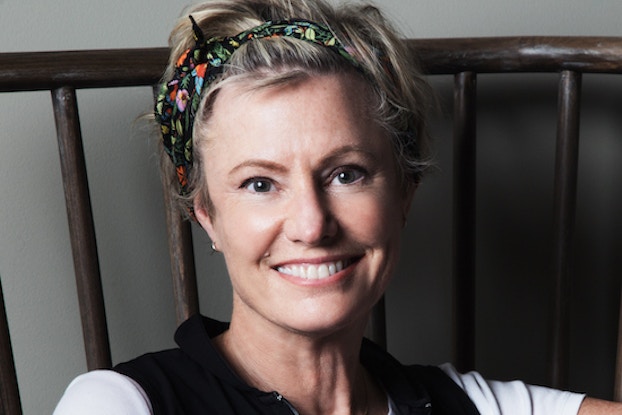
It was a grueling decision: Either return $350 million to investors and bail on the dream of launching a startup or plunge ahead into an economic odyssey way worse than fatalists foresaw.
Jules Pieri decided to go for it. She used the seed funding she had raised to launch The Grommet, a product discovery platform that curates, introduces and sells innovative new household goods and problem-solving gadgets. The year was 2008, only weeks after the Lehman Brothers collapse that brought the brewing Great Recession into sharp focus. Financial advisers warned: Don’t launch. She did it anyway.
The downturn fed panic but CEO Pieri and co-founder Joanne Domeniconi knew their business vision was solid. Less clear was how excruciatingly long the financial upheaval would last and the toll it would take on the business and everyone involved, Pieri said.
“I wouldn’t — I couldn’t – relive that,” she told CO—, recalling the havoc exacted on her health, personal finances and dedicated but overextended staff. Overcoming adversity — indeed, the chaos itself — helped steer The Grommet to become the thriving company it is today, Pieri said.
In the decade since launch, The Grommet (founded as The Daily Grommet) has showcased 30,000 novel products across 16 categories via its mix of multimedia storytelling, marketing, e-commerce and operational support. The staff evaluates and road-tests new products, selecting only 3% of submissions to be featured on the website.
Each weekday, The Grommet debuts a new, innovative product and often tells the story of its inventor, such as 76-year-old Bonnie Tyler, who created the Negg, billed as an easy hardboiled egg peeler. Many items are handcrafted, crowdfunded and positioned to scale. Among the upstarts The Grommet helped usher from obscurity to prosperity are FitBit, SodaStream, OtterBox and YakTrax.
Crisis feeds focus
The launch of The Grommet during dark economic times yielded lessons relevant to any business facing seemingly insurmountable challenges, be it access to capital, supply chain, staffing, and unexpected regulatory or competitive forces. While Pieri would not wish on anyone the brutal four years her company endured when capital markets shut down, she said there are benefits to being resource-starved.
“We did everything in the most scrappy way possible, which creates good discipline in a company,” said Pieri, whose book “How We Make Stuff Now,” was published in April. “I think every company should have a year or two of that existence. It forces you to focus on what really, really matters. As CEO, you are only doing things that create distinction and competitive defense.”
Consumers are too smart nowadays for outdated products.Jules Pieri, CEO and co-founder, The Grommet
At The Grommet, what mattered most was curating products and building trust with young companies and consumers while allowing other operations to limp along. “I had a staff of 10-12 people doing the work of 30 or 40 people, for four years,” she said. “It was bubble gum and Band-Aids in most of the company but not in the areas where we needed to be excellent.”
Do your homework, and R&D
Two key revelations validated The Grommet’s value proposition. First, Pieri’s design and technical expertise helped her recognize that emerging technologies like 3D printing, computer-assisted design (CAD) and laser cutters gave independent creatives untold power to produce prototypes cost effectively so consumers, not just corporations, could reward innovation.
Second, Pieri’s experience in corporate America, at times disheartening, she said, proved how big companies stifle innovation by imposing unrealistic sales goals on new products and increasing pressure for higher margins on the same old products. “You sort of kill your young at birth at a big company,” she said.
It is here where nimble, small companies enjoy a distinct advantage because they are free of those restraints. “Over the last six years, 19% of grocery share went from big brands to small brands,” Pieri said. “That’s insane because it’s super hard to get on the shelves of a grocery store.”
These newcomer “challenger brands” are succeeding because they invest in research and development (R&D), she said. “These little companies, if you look at their budgets, they are spending 25% or even all of their revenues on R&D. They are working on product excellence as Job 1, 2 and 3. And they also understand that no amount of marketing is going to make up for a bad product.”
“Consumers are too smart nowadays for outdated products,” she added.
Going forward, The Grommet hopes to harness consumers’ collective intelligence to expand the platform’s ability to showcase more innovative products – certainly more than the 3% of submissions selected for the website currently.
“I am pretty excited to figure out how to get our community more involved in seeing these products earlier and helping us vet them,” she said. “Our bottleneck is simply staffing.” It’s not clear how The Grommet will achieve that objective. “This is another leap for us, frankly,” Pieri added. “Gotta live on the edge, right?”
CO— aims to bring you inspiration from leading respected experts. However, before making any business decision, you should consult a professional who can advise you based on your individual situation.
CO—is committed to helping you start, run and grow your small business. Learn more about the benefits of small business membership in the U.S. Chamber of Commerce, here.

What can membership do for your business?
Gain tools to stay informed, competitive, and connected by becoming a U.S. Chamber of Commerce member. Membership gives you direct access to expert policy insights, economic updates, and exclusive resources designed to help your business thrive. From behind-the-scenes analysis from D.C. to exclusive discounts and expert support, U.S. Chamber membership helps you navigate change and seize new opportunities.







